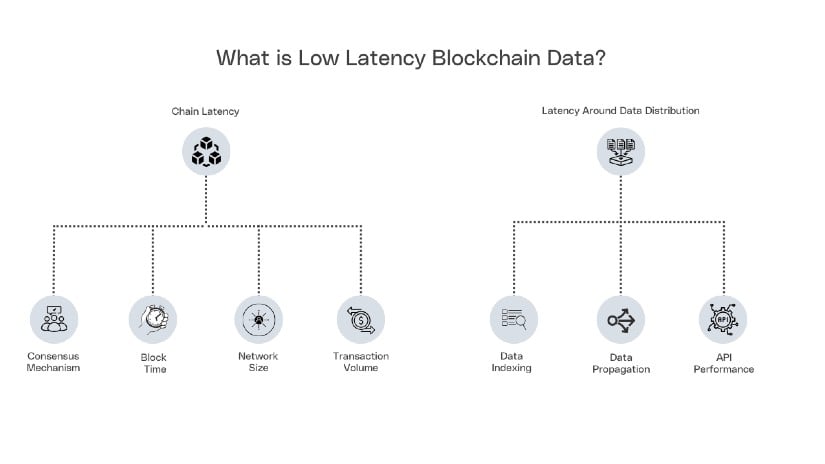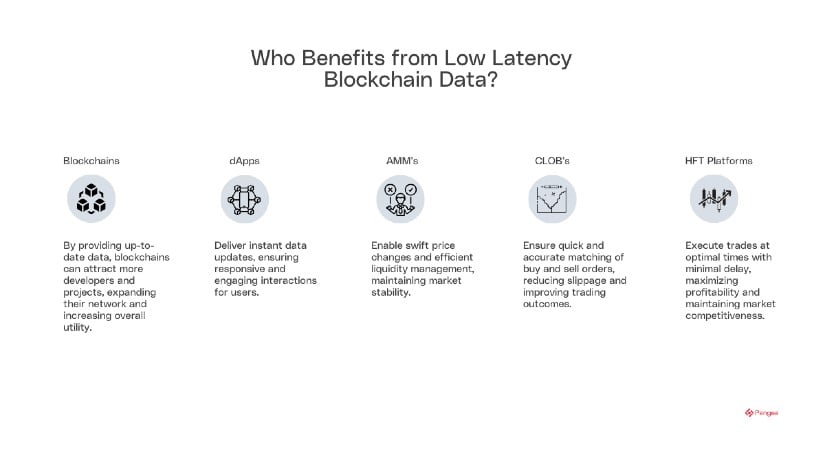As decentralized purposes (DApps) turn into a extra vital a part of the Web3 ecosystem, their efficiency lags in comparison with Web2 apps, primarily as a consequence of gradual knowledge retrieval occasions.
Pangea CEO Max Legg addressed this situation, emphasizing the necessity for environment friendly knowledge indexing options to eradicate bottlenecks and improve the person expertise for Web3 purposes.
Gradual DApp Efficiency: A Main Impediment for Web3 Adoption
One of the crucial vital challenges going through DApps as we speak is velocity. Not like conventional Web2 purposes, DApps depend on blockchain knowledge, which is unfold throughout numerous decentralized networks. This decentralized construction causes delays in knowledge retrieval, typically leading to gradual load occasions. In truth, customers are usually unwilling to attend greater than three seconds for an software to load, however many Web3 apps take as much as 20 seconds, driving potential customers away.

Diagram highlighting the important thing components behind blockchain knowledge latency. Supply: Pangea
In accordance with Legg, indexing blockchain knowledge may very well be the important thing to fixing these efficiency points. “Information from RPC nodes, sensible contracts, and different blockchain infrastructure can quantity to tons of of terabytes on high-throughput chains,” he stated. “Indexing is the method of organizing this uncooked blockchain knowledge so it may be retrieved effectively when wanted.” Correct indexing permits Web3 apps to operate at speeds akin to Web2 counterparts, making them extra viable for mainstream adoption.
Many Web3 builders are at present compelled to construct customized indexing options to deal with this downside. Nonetheless, these in-house options are typically inefficient, overly complicated, and require a major quantity of growth time. Legg identified that this strategy is just not sustainable. “This isn’t one thing you need your builders to be coping with. This can be a actual infrastructure downside that must be solved as soon as and for all, not repeatedly by each DApp developer,” he stated.
Ethereum and Layer Two Options: Paving the Means for Elevated Throughput
As blockchain throughput grows, the need for efficient knowledge indexing turns into more and more essential. Throughput, measured in transactions per second (TPS), is instantly proportional to the quantity of information that should be listed. Ethereum, the preferred blockchain for DApps, has formidable ambitions to extend its throughput to accommodate extra transactions.
In October, Ethereum co-founder Vitalik Buterin introduced intentions to spice up the Ethereum base layer’s capability to exceed 100,000 transactions per second (TPS) at the side of Ethereum’s layer-2 options. Legg’s feedback are in keeping with these targets, as increased throughput calls for sooner knowledge indexing and retrieval techniques.

Supply: Pangea
Layer-2 options, akin to Starknet and ZKsync, are additionally working towards enhancing throughput. StarkWare CEO Ben Sasson revealed on the DevCon 2024 convention that Starknet plans to quadruple its TPS throughout the subsequent few months, aiming to rival Solana’s throughput. ZKsync can be concentrating on 10,000 TPS by 2025 and goals to cut back transaction charges to as little as $0.0001. These developments will lead to huge knowledge era, which would require environment friendly indexing options to take care of app efficiency.
Solana’s Mannequin: A Benchmark for Excessive Throughput
Whereas Ethereum and its layer-2 options deal with scaling up, Solana’s blockchain has already achieved excessive throughput. Solana’s non-voting throughput at present ranges between 800 and 1,050 TPS. The community’s distinctive monolithic design has attracted vital developer curiosity, positioning it as one of many high ecosystems for blockchain growth in 2024.
Solana’s spectacular throughput serves as a benchmark for different blockchains, with many builders seeking to replicate its success. Nonetheless, even with high-throughput blockchains like Solana, the difficulty of indexing stays essential. As extra knowledge is processed, the necessity for efficient indexing options turns into much more obvious.
The Path Ahead for DApp Pace and Scalability
The important thing to realizing the total potential of Web3 apps is to enhance knowledge indexing. As blockchain know-how advances, decentralized purposes should be capable of deal with elevated knowledge masses whereas sustaining velocity. With corporations like Pangea striving to deal with these difficulties, the way forward for DApp growth seems shiny.
Legg’s insights spotlight the urgency of fixing this downside. Environment friendly indexing options is not going to solely make DApps sooner and extra dependable but additionally pave the way in which for wider adoption of decentralized applied sciences. As blockchain throughput will increase, the flexibility to course of and retrieve knowledge effectively will probably be important for Web3’s success.